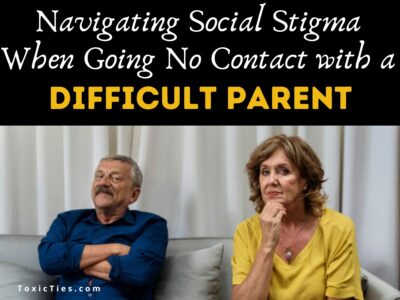Dealing with a narcissistic sibling is no walk in the park. Here are 10 ways to change the relationship dynamic and protect yourself from emotional harm.
Are you suffering in your relationship with an emotionally abusive sibling? Dealing with a
narcissistic sibling’s behavior is difficult in itself. Setting a new precedent in the relationship to protect yourself adds another layer of difficulty.
Of course, distancing yourself or setting boundaries with your sibling is a good thing. Nobody deserves to be used, gaslit, or manipulated.
But changing a long-standing relationship dynamic has its challenges. It requires acceptance, grieving, self-discipline, support, and consistency. And the narcissist in your life isn’t going to like it.
This guide will help you learn the necessary steps for dealing with your narcissistic sibling.
Step 1: Practice Radical Acceptance
If you grew up in the same home as this sibling, your parents probably drilled into you that you
need to accept your sibling as they are, no matter how they treat you.
But here’s what your parents likely didn’t explain: it doesn’t mean you have to be okay with it.
Accepting your sibling as they are means coming to terms with the reality that your sibling engages in abusive behaviors. Accepting those behaviors is a different matter.
You can’t change them, but you can change how you engage with them — if you choose to engage with them at all.
Step 2: Grieve the Relationship
When you hear the word “grief,” you may understand it as being sad or missing someone who passed away after a long disease or unexpectedly died in a tragic accident.
But grieving isn’t limited to loved ones you’ve lost to death. You can grieve a relationship with someone even if that person is still in your life.
This is the most underrated, invisible, and misunderstood form of grief, and it is as real as grief over the death of a loved one.
Give yourself permission to grieve the sibling you wanted, the relationship you deserved, and the hope you had that your sibling might change.

Step 3: Educate Yourself on Narcissism
Understanding narcissism can be a game-changer as you navigate the challenges of dealing with a narcissistic sibling.
First off, it’s important to know that your sibling didn’t choose to be a narcissist. The condition is most likely rooted in childhood emotional trauma.
It is natural for you to want to have a good and loving relationship with your sibling, but the reality is that narcissists have a distorted view of love.
No matter how hard you try, your narcissistic sibling will always make you feel less than. It’s like being stuck in an elevator that only goes to one floor.
Gaining a deeper understanding of narcissism won’t cure your sibling. But it can make it easier on you, especially if you often end up feeling lost, confused, and frustrated by your sibling’s antics.
Aside from education, the best way to protect yourself from a narcissistic sibling is by setting boundaries.
Step 4: Set Healthy Boundaries
You may have already tried setting boundaries with your sibling, and they just broke right through them.
This is part of the challenge with narcissists. They don’t see other people as separate from themselves. So if your needs and boundaries don’t align with what they want, your sibling isn’t going to respect them.
This is where radical acceptance comes in. If you accept that your sibling doesn’t leave your house when you ask them to, it may be time to set a new boundary: You no longer conduct visits with your sibling in your home.
Afraid your sibling will lash out about your new boundary? It’s okay to keep your reasoning to yourself. This means if it’s emotionally unsafe for you to tell your sibling, “You’re no longer welcome at my house,” you don’t have to.
When it comes to your psychological safety and well-being, white lies are okay. You can say something like, “I’m already going to be out and about at that time. Let’s meet at the coffee shop to talk instead.”
Step 5: Prioritize Yourself
Narcissists expect everyone to attend to their needs 24/7, and they’re not concerned with whatever you’re dealing with. Everything revolves around them, especially people close to them.
So don’t allow your sibling to take over your life.
Know when to give them the spotlight and when to prioritize your needs. Suppressing your true emotions and desires isn’t an option if you want a healthy and balanced life. Your psychological well-being matters.
Even if your relationship with your narcissistic sibling may sometimes cross the line of healthy, it is still up to you to set the tone for your involvement.
So don’t forget to take care of yourself. You can’t have your focus on your sibling 24/7, 365 days a year.
Step 6: Don’t Take the Blame
Narcissists love playing the blame game.
Don’t let yourself become your sibling’s permanent scapegoat. You shouldn’t shoulder the blame for everything they refuse to acknowledge.
It’s natural to want to keep the peace, but silencing yourself to salvage their ego will only hurt you in the end. Over time, you may internalize the false narrative that you are always at fault, leading to guilt, shame, and self-doubt.
Even if your narcissistic sibling won’t admit fault, refusing to accept undue blame may cause them to retreat after all.
So, assert your worth and don’t let their actions make you question yourself.

Step 7: Set Clear Expectations
Generally speaking, narcissistic individuals are not great at relationships. They’re volatile, unpredictable, self-centered, and often abusive.
So having high expectations for them will always keep you disappointed.
Instead, decide how much you are willing to tolerate, hold them to that “bare minimum, ” and be specific.
For example, if you live together and your sibling encroaches on your personal space, think about the restrictions you want to put in place.
Do they walk into your room without knocking? If so, put a sign on the door stating, “Please knock and wait for an answer before entering.” Do they always ask to borrow money? Tell them: “I’m not comfortable lending you money but I am open to helping some other way.”
Step 8: Keep Your Distance
At some point, you may decide that the only way to maintain healthy boundaries with your sibling is not to see them at all. You may choose to go low-contact or no-contact in order to protect your mental health.
If your relationship with your parents is healthy and supportive, it may be beneficial to let them know ahead of time that you’ve decided to limit your contact with your sibling.
Step 9: Grow Your Support System
There’s no doubt that growing up with a narcissistic sibling did a number on your self-esteem.
That’s why healthy, supportive mutual relationships are the best antidote to emotional abuse.
As you embark on your journey of boundary-setting, grieving, and ultimately healing, you’ll want the right people in your corner. These are people who can witness your experience and show you what it looks like to be truly loved for who you are.

Step 10: Work It Out in Therapy
A therapist who specializes in issues of emotional abuse or narcissistic sibling abuse can be an invaluable part of your healthy support system. Your therapist can provide helpful language to use when setting boundaries, keep you accountable for maintaining them, and support you in your grieving process.
As you begin to unpack your relationship with your sibling, you may start to see how their abuse
has impacted every area of your life — whether that’s your social life, dating, or finances. You deserve plenty of space and time to work through the effects, and therapy is a great place to do it.
Final Thoughts
The process of disengaging from your emotionally abusive sibling may be painful, but that doesn’t make it the wrong thing to do.
As you embark on this path, give yourself credit for choosing to honor your happiness and integrity.
Things may get tricky along the way, so keep the big picture in mind. Even if your sibling never changes, you still have the power to make choices that change the relationship dynamic.









Leave a Reply